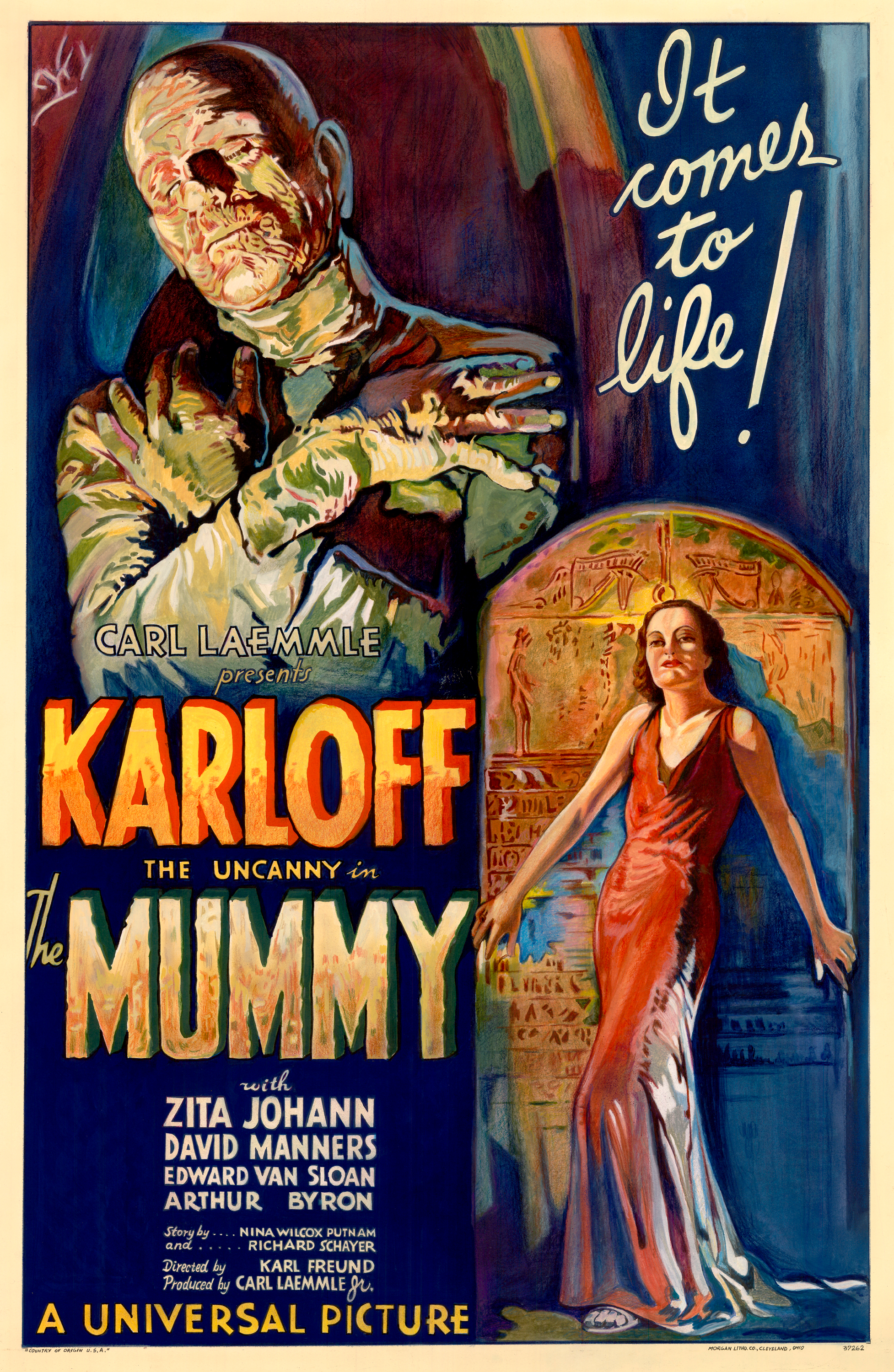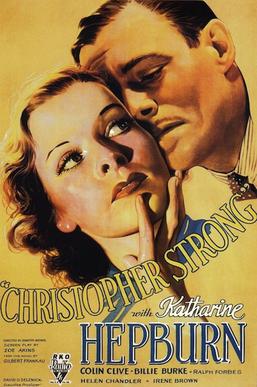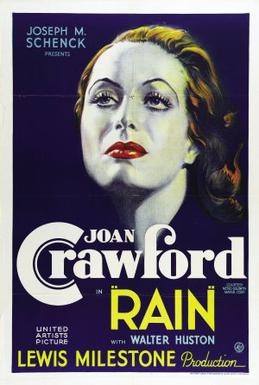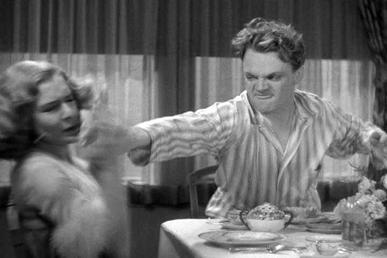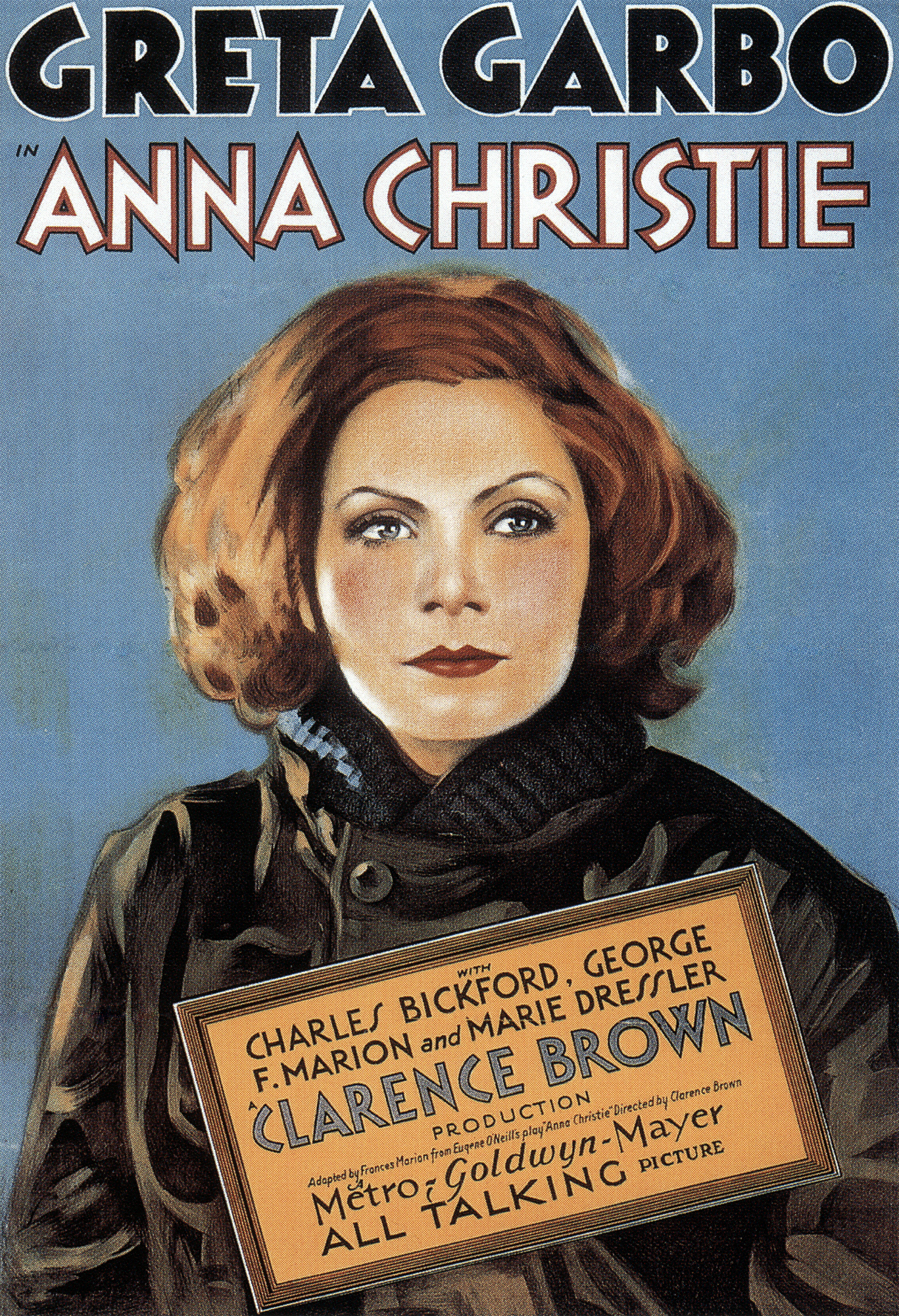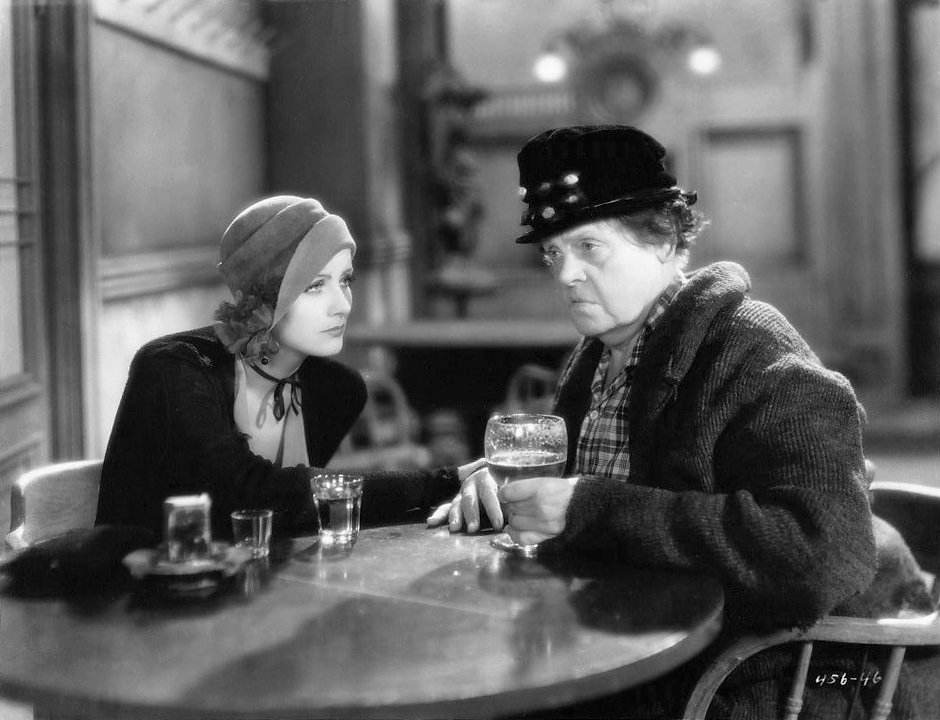I am told that What Price Hollywood? should be included in any A Star is Born retrospective in that the film hits on similar themes. I am not convinced that What Price Hollywood? is the original A Star is Born due to certain differences between the films. I won't argue for or against the idea, however. What Price Hollywood? is a fine film separate from any connection to the oft-told tale of one star's rise and another's fall.
Waitress and aspiring actress Mary Evans (Constance Bennett) finds drunk film director Max Carey (Lowell Sherman) amusing and nice even if he is sloshed. Carey has stopped by the Brown Derby for more than a few aperitifs before heading towards his film's premiere. Almost as a lark, he invites Mary to join him, and she does. Soon, she manages to get thanks to Max a screen test, and a Star is Born with Mary becoming "America's Pal".
Mary also finds love and romance with Lonny Borden (Neil Hamilton), a dashing polo player who has no idea who Mary is, much to Mary's irritation. Despite that, a love affair blossoms between Mary and Lonny. She, however, will not be denied her career, costing her the marriage to Lonny. One good thing came about from that, however: her son Jackie. For his part, Max's career is going down while Mary's continues to rise, his drinking shifting from amusing to dangerous.
Mary does her best to help her friend and mentor, bailing him out and attempting to encourage him to make a comeback. However, his troubles are too great, and he takes his own life as he attempts to dry out at her mansion. The scandal causes her to flee to France, where coincidentally Lonnie is staying too. Will Mary find love again or will she find that she is willing to pay a price for Hollywood glory?
I can see why people hold that What Price Hollywood? is the original version of A Star is Born (the latter's first adaptation premiering five years later). You have an ingenue and her creator, the female's rise as a counter to the male's fall, drunkenness, suicide and scandal. I do see some differences, however. In all versions of A Star is Born, the female marries the male mentor. This does not happen in What Price Hollywood? You have a love interest for the female separate from her mentor. You also have a child, something missing from all four A Star is Born films. Are those enough to make A Star is Born different from What Price Hollywood? I lean towards yes, but barely. At most, I think one can say that A Star is Born was "inspired" by What Price Hollywood? but I won't belabor the point. It is up to those who have seen both What Price Hollywood? and A Star is Born to come to their own conclusions.
Separate from that, let's look at the film itself. What Price Hollywood? is a well-acted piece of drama. Constance Bennett, I imagine, is at most a faded name from the so-called Golden Age of Film. That seems a pity, for she gives an excellent performance in the film. She is funny and charming and even is able to show Mary as a strong woman who is an ambitious little minx. Her determination, for example, to redo a screen test that went badly showcases Mary to be no shrinking violet. Her genuine anger at not being known, followed by genuine love and heartbreak for both Jackie and Max's eventual fall reveal a strong actress.
An element that did surprise me when it came to Sherman's Max Casey was on any suggestion of romance between him and Mary. Perhaps I am reading too much into things, but I thought that Max came across as slightly fey to gay. I never got the sense that Max was in love with Mary, at least sexually. He seemed fond of her, amused by her, but I never saw anything close to desire. Jealousy perhaps, but more of a possessive sort than an erotic one. Yet I digress.
Sherman did well as the ultimately self-destructive Max. He was amusing, almost endearing as the happy drunk who was at heart a nice fellow. As What Price Hollywood? went on, however, we saw how Max could also be snippy and harsh. Still, at the end, we see the tragedy of Max Casey. In another moment eerily similar to A Star is Born, Max calls Mary. "I just wanted to hear you speak again, that's all". To be fair, I cannot remember if this was a telephone call or when he was trying to dry out at her home. However, I found this moment sad, almost resigned.
Again, it should be noted that this line, with its echoes of A Star is Born's "I just wanted to take another look at you," comes at the end of the film, not at the beginning like all the A Star is Born versions. In those versions, that line suggests the start of a beautiful but doomed romance. In What Price Hollywood? it is closer to the acceptance of the end of a beautiful but doomed friendship.
Interestingly, What Price Hollywood? has a good number of clever lines in Gene Fowler and Rowland Brown's screenplay. Early on, Max mocks Mary's suggestion that he is any kind of genius by recounting a past marriage. "I proposed to her once for saying just that," he says. "She turned around and sued me". "For being a genius?", she asks. "No, for fifty grand", he replies. At the premiere, Max continues with a gag that Mary is an unknown aristocrat. Playing along with the bit about her being "the Duchess of Derby", she tells the premiere radio host, "I must go now. Mr. Cary is waiting there is nothing so exasperating as waiting on people". As they leave, she wisecracks to Max, "I ought to know".
That does not mean that What Price Hollywood? is a comedy. It manages to also have strong dramatic moments, even cutting ones. When, for example, Lonnie objects to his wife continuing to work on film, he is told by one of her directors, "Why don't you let me direct Miss Evans and you be Mr. Evans?".
I would argue that the weak link in What Price Hollywood? is Neil Hamilton. To be fair, it is all but impossible to not see Commissioner Gordon from the 1960's Batman television show when you see Hamilton on screen, making it hard to see him as a romantic lead. Even if I were unaware of Hamilton as the ultimate camp square facing off against King Tut or Marsha, Queen of Diamonds, I found him rather stiff to silly as Lonnie. He was acting with a Capital A, making their long scene of romance a bit hard to take. Still, even here we have some of the film's wit. "I'm in pictures," Mary tells Lonnie, miffed that she is not recognized after an initial altercation. "Well don't blame me," he replies.
What Price Hollywood? may or may not be first version of A Star is Born, but on its own, it is a good film worth finding, if only to decide to yourself whether what came after was a homage, an inspired by or a plain old rip-off.
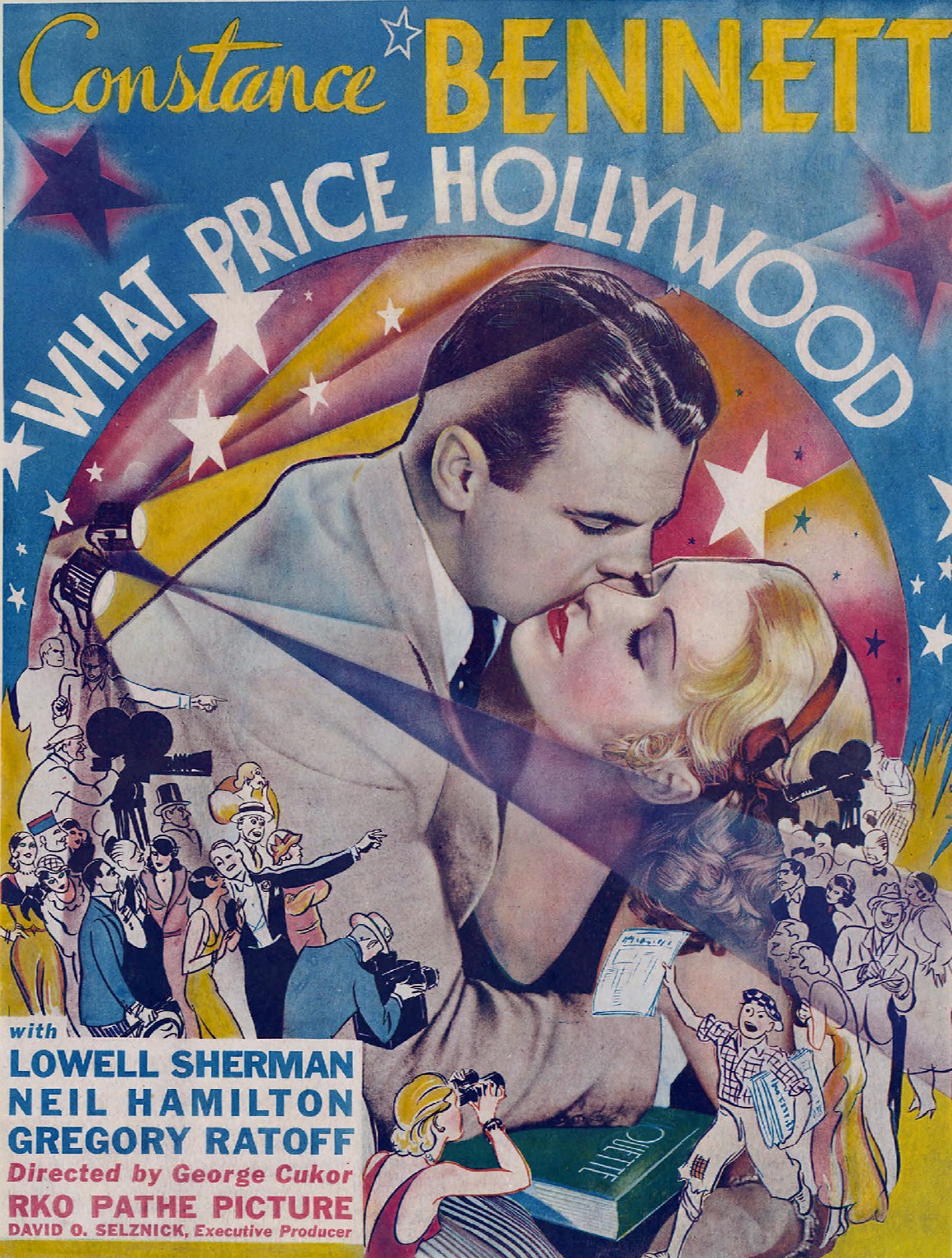



_film_poster.jpg)



